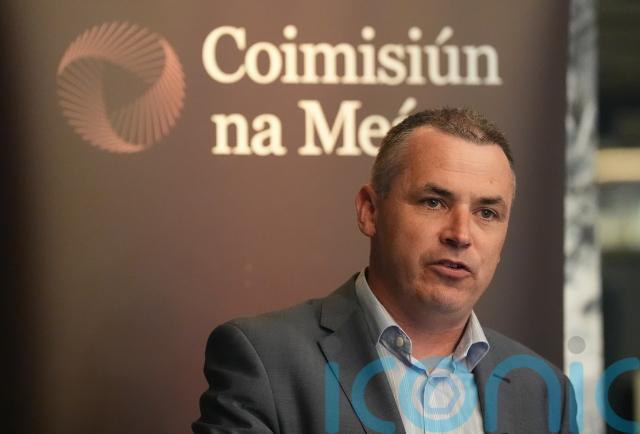
More than half of Irish people are uncomfortable with news being produced mostly by artificial intelligence (AI) with only some human oversight, a new report has found.
The report also stated that some 15% of people in Ireland were very comfortable or somewhat comfortable with AI-produced news which involved only some human oversight.
The annual Digital News Report, which is carried out by the Reuters Institute for the Study of Journalism at the University of Oxford, and sponsored by Ireland’s media and online regulator Coimisiun na Mean, published its findings in a lengthy report on Monday.
Are Irish people comfortable with the use of AI in news production? #DNR24 pic.twitter.com/cRwdfNlt0C
— Coimisiún na Meán (@CNaM_ie) June 17, 2024
It found that 44% of people said they had read or heard a large or moderate amount about AI, and a further 41% said they knew a small amount about AI.
Men reported a greater knowledge about AI compared to women, with 16% of men saying they had a large amount of knowledge compared to 8% of women.
Awareness of AI was higher among younger age groups, with 61% of those in the youngest cohort claiming a large amount or moderate amount of knowledge versus 37% who were age 65 and over.
Some 60% of men under the age of 35 said they knew a large or moderate amount about AI, compared to 53% of women in that age group.
Irish people were very wary of news produced mostly by AI when it concerned more serious topics such as political news or crime coverage, compared to what could be seen as lighter topics including celebrity and entertainment news or sports, and arts and culture.
It also found that some 53% of Irish people said they were extremely or very interested in news, an increase of 1% on last year, but a significant fall from 70% in 2021.
This year, some 32% of Irish people said they were extremely or very interested in politics, a 6% fall from the last general election year in 2020.
The report also showed significant differences in political interest across gender and age, with 43% of men compared to 22% of women saying they were extremely or very interested in politics.
The top three categories for people were local news, international news and political news, followed by crime and security, and sports and environmental news.

The report found that 81% of Irish adults accessed news once or more per day, with 59% saying they accessed news several times per day.
It also revealed that 40% said they were worn out by the amount of news, with women reporting higher levels of fatigue at 45%, compared to 36% of men.
Some 44% said they sometimes or often avoided the news, which was a 10% increase compared to last year.
It also revealed that 46% of people agreed that you could trust most news most of the time, a slight drop of 1% compared to last year.
The number of people using Facebook to access news was continuing to fall and had dropped to 29% of people using the social media platform to read the news.
The report showed that 22% of the Irish public were using WhatsApp to read the news, as well as Instagram and YouTube.
The amount of people who paid for news had also risen, to around 26%.
Coimisiun na Mean media development commissioner Ronan O Domhnaill, said that people’s definition of news was changing.
Speaking at the launch of the report on Monday, Mr O Domhnaill said: “People are moving away from a definition of news that’s about daily updates, the facts, the horse race, four days of coverage of the European and local elections, and moving toward definitions that are not about for them news, climate, wellness, health, sport, technology.
“They don’t categorise that as news.
“They’re experiencing obviously a cloud of information coming to them from people who are their influences, some of them journalists, but they’re also developing incredibly well-defined ways of establishing credibility and trust.
“I think when we look at news avoidance, the news fatigue, we’ve got to say to ourselves ‘what they are moving away from?’ I think it’s a form of news that’s loud and noisy and dragging you back to a website, and living in an environment where they’re looking for news that serves their best intentions, not the worst instincts.

“When you see the statistics, people are asking for understanding, is what they’re looking for from news providers, not necessarily updates on facts every moment of the day.
“They’re looking for constructive journalism that’s not obsessed with a negativity bias.”
Dr Amy Ross Arguedas, from the Reuters Institute for the Study of Journalism, said that people tended to have a “knee-jerk” reaction to the idea of AI being used to produce news.
“Once we start showing people what this looks like, then we start seeing people tend to be a bit more comfortable when they see that AI is being used by human journalists,” she added.
“So human journalists are still very much in the driver’s seat.
“They’re a lot less comfortable when it comes to the idea of AI fully generating content and automation is clearly off limits for audiences.
“They do not want full automation.”
She also said that issues around disclosure of the use of AI in news stories would also become clear.

“I think the question around disclosure is one that is going to be navigated with a lot of care, figuring out when is disclosure really necessary and also how are we disclosing what’s being done,” she added.
“It’s also the case that if we just had this like generic AI label, since people are having this knee-jerk reaction, we can see this paradoxically damaging news brands.”
Colleen Murrell, a professor at Dublin City University, said that transparency in news had become very important.
“The top two reasons that people give for why they would trust the news organisation, one of them has to do with top-notch journalistic standards,” she added.
“News standards are still really important and transparency is another. I noted that this year is the first year, for example, that the Pulitzer Prize winners and runners-up said they used AI.
“You’re going to use AI to crunch large data numbers because that’s really important. But you also need to think are people worried about it? Yes, they are a bit because of trust reasons.
“AI is moving so fast but it has trust issues.”
Subscribe or register today to discover more from DonegalLive.ie
Buy the e-paper of the Donegal Democrat, Donegal People's Press, Donegal Post and Inish Times here for instant access to Donegal's premier news titles.
Keep up with the latest news from Donegal with our daily newsletter featuring the most important stories of the day delivered to your inbox every evening at 5pm.